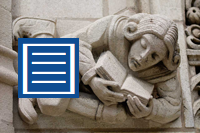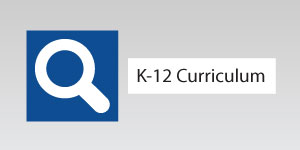Have a suggestion to improve this page?
To leave a general comment about our Web site, please click here
Statement of US Senator Joe Lieberman
Upon introduction of The Teacher Professional Development Institutes Act in the United States Senate

Mr. President, I rise today to introduce, along with my colleague from Connecticut, Mr. Dodd, legislation that will bolster the content and pedagogical knowledge of our K-12 teacher workforce. This measure provides resources and incentives to enlist college and university faculties in partnerships with public school districts throughout the nation in an effort to strengthen public school instruction.
My proposal will establish, over the next five years, forty new Teacher Professional Development Institutes in locales throughout the nation. Based on the model which has been operating at Yale University and the City of New Haven for over 25 years, Teacher Professional Development Institutes consist of partnerships between one or more institutions of higher education and local, economically-disadvantaged public school systems. These Institutes will strengthen the present teacher workforce by giving participants an opportunity to gain more sophisticated content knowledge and instructional skills, and will provide them a chance to develop--in conjunction with their Institute colleagues--practical curriculum units that they can implement in their classrooms and share with their schools and districts.
Since 1978, the Yale-New Haven Teachers Institute has offered five to seven thirteen-session seminars each year, led by Yale faculty, on topics that teachers have selected to enhance their teaching mastery. To begin the process, teacher representatives from the Institute solicit teachers throughout the school district for ideas on how to help meet their perceived needs--for example, improving content area knowledge, preparing instructional materials, managing the classroom, or addressing accountability standards. As a consensus emerges regarding seminar content, the Institute director identifies and enlists university faculty members with the appropriate expertise, interest, and desire to lead the seminar. Because the topics are ultimately determined by the teachers who participate, seminars offer content which teachers believe is pertinent, valuable, and practical for both themselves and their students.
It is, in fact, the cooperative and emergent nature of the Institute seminar planning process that ensures its success--rigorous topical instruction and relevant materials are provided based on participants' self-identified needs. Granted the opportunity to examine and act on their own skills and knowledge, teachers gain a sense of self-sufficiency, and are more enthusiastic about their participation. Teachers gain further confidence as they practice using the materials they obtain and develop among their peers, ensuring that the experience not only increases their subject-matter proficiency, but also provides immediate hands-on active learning materials that can be transferred to the classroom. In short, by allowing teachers to determine the seminar subjects and providing them the resources to develop curricula relevant to their classroom and their students, the Institutes empower teachers. Teachers are the front line--they are the interface between the educational system and the students it aspires to shape and inform--and they know what should be done to improve their schools and increase student achievement. The Teacher Professional Development Institutes promote this philosophy.
From 1999-2002, the Yale-New Haven Teachers Institute conducted a National Demonstration Project to create comparable Institutes at four diverse sites with large concentrations of disadvantaged students. These demonstration projects were located in Pittsburgh, Pennsylvania ; Houston, Texas ; Albuquerque, New Mexico; and Santa Ana, California. Based on the success of that Project, the Institute has launched the Yale National Initiative --a long-term endeavor to establish exemplary Teachers Institutes in states throughout the nation, just as the legislation I have introduced would do.
Follow-up evaluations have garnered encouraging reactions from teachers who have participated both in the Yale-New Haven Institute and in the demonstration Institutes . These data strongly support the conclusions that virtually all teachers felt substantially strengthened in their mastery of content knowledge and that they developed increased expectations for students achievement. Further, because of their personal involvement in the course selection and curriculum development process, teacher participants have found these seminars to be especially relevant and useful in their classroom practices--in fact, ninety-five percent of all participating teachers reported them to be beneficial. Finally, study results have found that these Institutes foster teacher leadership, develop supportive teacher networks, heighten university faculty commitments to improving K-12 public education, and create more positive partnerships between school districts and institutions of higher education--something I believe is essential to improving students' readiness for college.
Several studies assert that teacher quality is the single most important school-related factor in determining student achievement. Accordingly, the No Child Left Behind Act requires a "highly qualified" teacher to be in every classroom by the end of the 2005-2006 academic year. Effective teacher professional development programs that focus on content area and pedagogical knowledge are proven means of enhancing the success of classroom teachers and helping to meet the "highly-qualified" criteria. Yet, a 2003 Government Accountability Office Report on Teacher Quality found that many state and local school districts view shortcomings in their current professional development practices as a significant barrier to meeting this requirement. These local agencies are looking for innovative, research-proven alternatives to their current programs, and this is precisely what Teacher Professional Development Institutes will provide.
Nationwide, projects developed to conform to the Yale-New Haven Institute model have proven to be a successful in providing innovative teacher professional development. Virtually all teacher participants felt substantially strengthened in their mastery of content knowledge and their teaching skills. My proposal would open this opportunity to many more urban teachers and would provide high quality professional development to educators and policy makers throughout the nation. In this way, we can set high standards for effective teacher professional development as we have done for student achievement outcomes.
I ask unanimous consent that the text of the Teachers Professional Development Institutes Act be printed in the RECORD.
-
 Public School Teachers Named Yale National Fellows
Public School Teachers Named Yale National Fellows -
 Yale National Fellow Featured on CBS 6 News in Richmond
Yale National Fellow Featured on CBS 6 News in Richmond -
 Curricular Resources
Curricular Resources -

Search Curricular Resources written by teachers in National Seminars and Local Teachers Institute seminars.
-

View the Photo Gallery of Participants at Yale.
-

Explore the archive of News and Feature Stories.